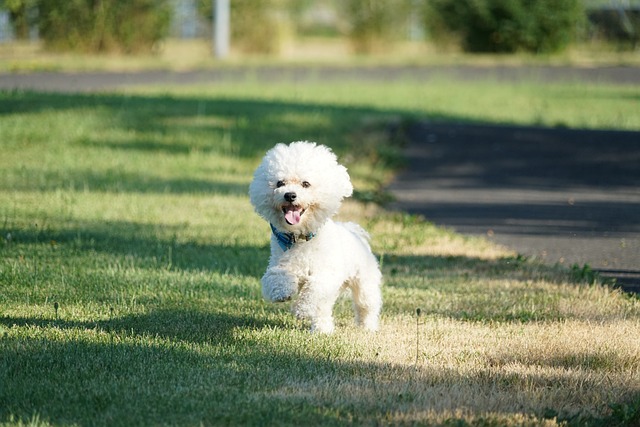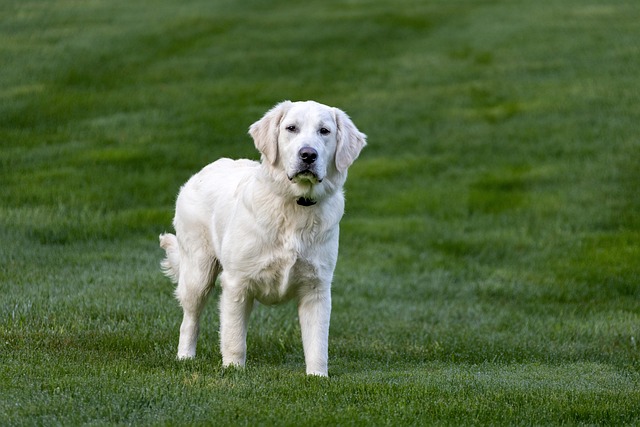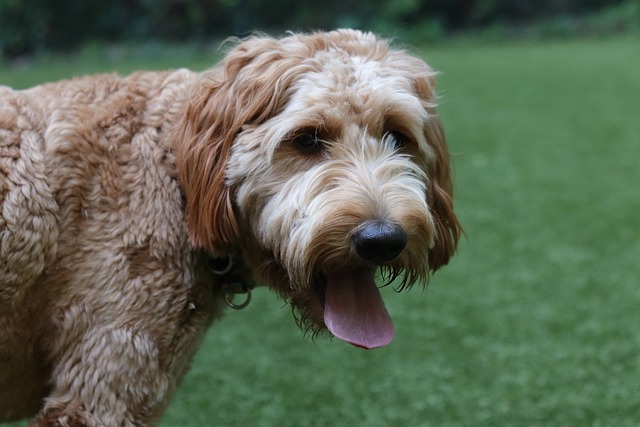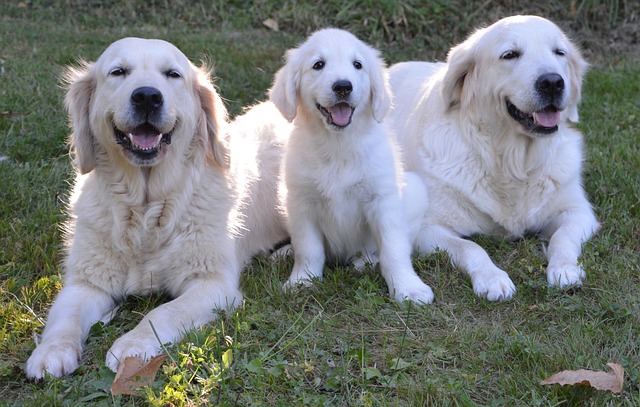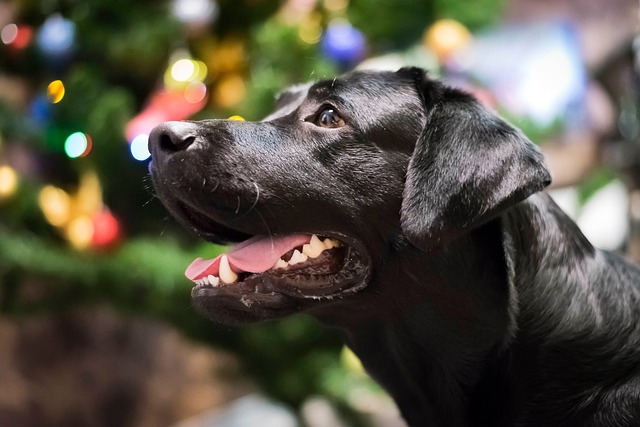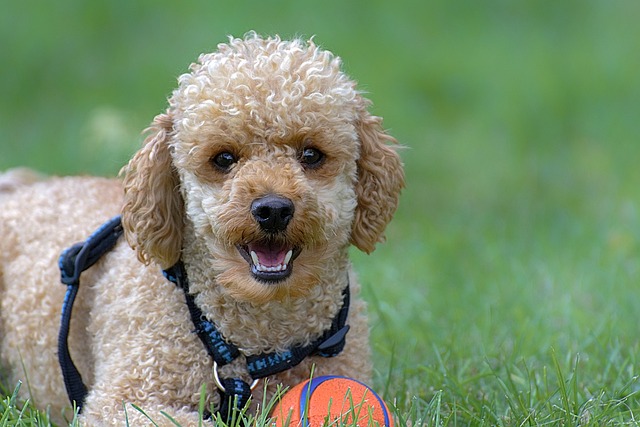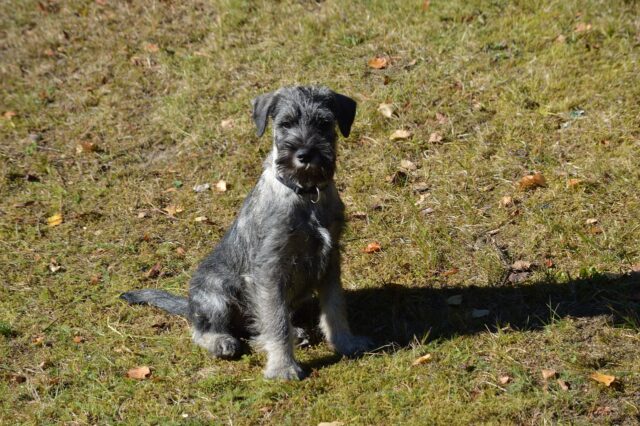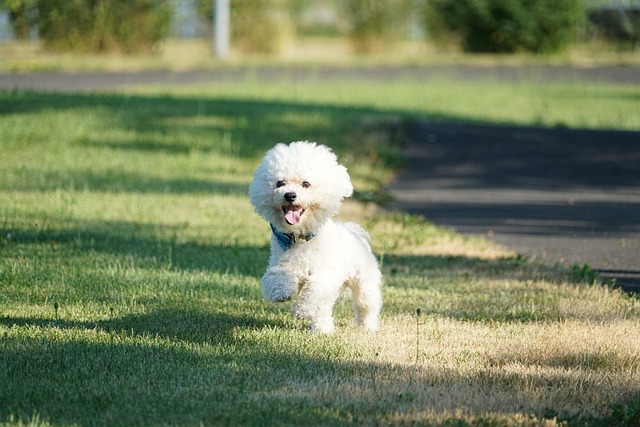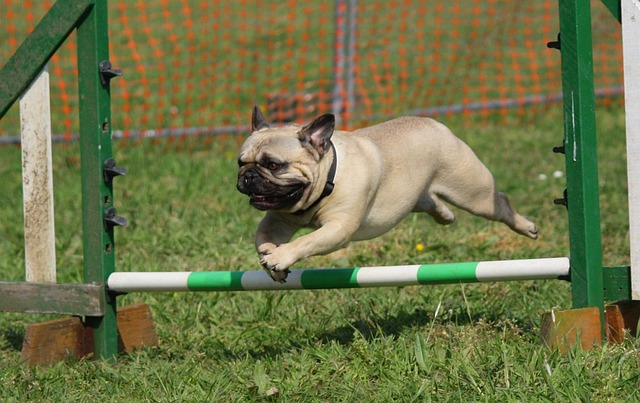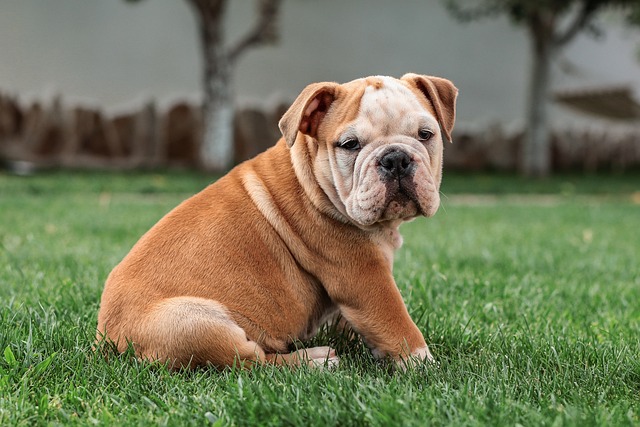There’s nothing more fun than choosing a puppy with your children. With so many family-friendly dog breeds, choosing the best dog breed for your family is even more difficult.
What breeds are good with children? This is one of the most common questions parents ask before purchasing or adopting a puppy. Breed size plays a significant role, as do temperament, grooming, and exercise requirements.
Some breeds are high maintenance via their grooming needs, while others may be low maintenance but high energy, requiring plenty of off-leash runs, hikes, and trips to the dog beach. Although many breeds make terrific family dogs, having a good family dog involves many factors, such as early socialization and positive training during puppyhood, the age and maturity of the children at home, the age of the dog and the dog’s health, parental supervision, and how the children handle the puppy.
Caring for a puppy can teach a child responsibility and patience and get everyone out of the house for long walks and bicycle rides with their new furry friend. But before bringing home a new puppy, it’s always best to research and choose a breed to fit your lifestyle.
With over 400 different breeds, some breeds are more child-friendly than others, and even mixed designer hybrids like Goldendoodles reflect their ancestry in both looks and personality.
You and your new furbaby will spend many years together, probably ten or more. During this time, you’ll enjoy training, outings, dog walks, veterinarian trips, pet vacays, and possibly participate in dog sports like agility or flyball.
A more laid-back breed with an easygoing temperament is vital if you have young children at home. When choosing a family-friendly breed, selecting a puppy or dog with a laid-back and easygoing temperament will make everything so much easier for the entire family, including your new puppy.
Breeds known for their patience, gentleness, and playfulness are ideal, as these breeds will form strong bonds with adult and children family members. The American Kennel Club (AKC) recommends many companion breeds that get along well with children. Here’s the takeaway:
Does a Dog Breed Determine a Child-Friendly Breed?
” Although many physical traits were associated with breeds, behavior was much more variable among individual dogs. In general, physical trait heritability was a greater predictor of breed but was not necessarily a predictor of breed ancestry in mutts, ” says a 2022 study about ancestry-inclusive dog genomics.
The study explains that “Among behavioral traits, biddability—how well dogs respond to human direction—was the most heritable by breed but varied significantly among individual dogs. Thus, dog breed is generally a poor predictor of individual behavior and should not be used to inform decisions relating to selection of a pet dog.”
What To Look For in a Family Dog?
Key Factors to Consider When Purchasing a Family Dog
- Size: Select a breed size that suits your family’s living arrangements and lifestyle, whether it’s a small, medium, or large breed. Consider breeds that do well with city/ apartment living and those that do best with more space.
- Personality: Look for breeds known to have friendly, gentle, and patient temperaments, which are typically more suitable for families with children.
- Activity Level: Consider the breed’s energy levels. Some families may prefer an active dog that enjoys exercise and outdoor activities, while others may opt for a more laid-back and relaxed companion.
- Training Issues: Research potential breed-specific training challenges. Some breeds may require consistent training due to their independence or stubbornness, while others are generally more receptive. Speak to your local trainer before making a decision.
- Barking Tendencies: Consider the barking tendencies of different breeds. If excessive barking is a concern, opt for breeds known to be quieter or trainable in managing their vocalizations.
- Sociability: Determine how sociable the breed is with both people and other animals. Breeds with a friendly and sociable disposition are typically more suitable for families, especially those with children or other pets. Talk to your veterinarian, dog trainer, or breeder, and consider your lifestyle before adopting or purchasing a puppy.
American Kennel Club: Top Breed Picks for Families
The American Kennel Club (AKC) says that many breeds make excellent family dogs, though some are better suited for farm or suburban living than families living in the city. According to the AKC, the most crucial takeaway when adding a new furry best friend to the family is that the entire family, including the children, needs to be involved in the decision-making process.
Best of all, the AKC offers online dog training classes for children to help with positive training and help children understand life with a puppy or adult dog. Creating a schedule for your new puppy’s walking, feeding, training, grooming, and veterinary care is essential when you parent a dog.
Best Dog Breeds for Families With Children
Our top picks are great for first-time dog owners, but you must consider dog and child behavior before selecting a breed. Even gentle breeds need plenty of socialization, training, and trips to the dog park.
For instance, the Labrador Retriever, known for being friendly and outgoing, is a good choice for active families. This is because the Labrador Retriever is also active, has high energy levels, and loves exercise and play.
The AKC adds that some of the best family dogs are the following:
-
- Golden Retrievers
- Labrador Retriever
- Irish Setters
- Beagles
- Pugs
- Brussel Griffons
- French Bulldogs
What Redditors Say
We scanned through Redditor’s comments to see what families had to say about the best family dog breeds for homes with children. One Redditor advised staying away from herding breeds.
“Herding breeds – they tend to try to herd younger kids that they see as their flock to protect, which can mean getting under their feet and nipping. They also tend to be somewhat anxious and do not like loud noises (i.e., screeching kids playing). “I have a cockapoo. They’re calm, sweet little angels who love kids and don’t shed,” says another Redditor.
Our Top Picks for 11 Best Family Dogs
- Golden Retriever
Size: Large
Life Expectancy: 10-12 years
Temperament: Cuddly, easy to train, fun to be with.
The Golden Retriever belongs to the UKC Gun Dog Group and AKC Sporting Group. The Golden Retriever is outgoing, playful, and even-tempered.
This breed has a moderate to high energy level, making them well-suited for active families who can provide plenty of exercise and mental stimulation. Whether playing fetch in the backyard or going for long walks, Golden Retrievers thrive when they have outlets for their energy.
In addition to their excellent temperament, Golden Retrievers are also highly trainable. They are eager to please and respond well to positive reinforcement, making them famous for various dog sports and activities. Their intelligence and willingness to learn make training sessions enjoyable and rewarding experiences for both the dog and pet parent.
- Labrador Retriever
Size: Large
Life Expectancy: 10-14 years
Temperament: Smart, good with small children, social & enthusiastic.
The Labrador Retriever is part of the UKC Gun Dog Group and AKC Sporting Group and was bred to be even-tempered and friendly with other dogs, children, and people. This breed does well with an active family in either city, rural, or suburban environments.
Labradors have a natural affinity for small children, making them popular for families with young kids. Their patient and gentle demeanor ensures a harmonious and safe environment for everyone.
The Labrador Retriever is an ideal choice if you’re looking for a family dog breed that combines intelligence, sociability, and enthusiasm. Their loyal and affectionate nature will undoubtedly make them cherished members of your family for years to come.
Poodle
Size: Toy, mini and medium
Life Expectancy: 10-18 years
Temperament: Enjoys dog sports, has plenty of exercise needs, and loves children and other pets.
The Poodle belongs to the UKC Gun Dog Group and the AKC Non-Sporting Group. The Poodle can be found in standard, miniature, and toy sizes. But it’s not just their appearance that sets them apart. Poodles are smart dogs known for their exceptional trainability.
Poodles are easy to train because they can pick up on cues quickly and effortlessly and learn new tricks and commands. This intelligence also makes them well-suited for obedience trials and dog sports. Although poodles are usually wary of strangers, they make good family dogs because they’re patient with children and other animals.
- Beagle
Size: Small
Life Expectancy: 10-15 years
Temperament: Good-natured but independent. Does well with young children but needs plenty of socialization and positive training.
The Beagle is part of the UKC Scenthound Group and AKC Hound Group. This small, good-natured dog breed does well with an active family. It is adaptable to different living situations, including city living, but it needs plenty of exercise and training.
When considering adding a Beagle to your family, finding a reputable breeder is important. A responsible breeder will prioritize the health and well-being of their dogs, ensuring that they are properly socialized and free from any genetic health issues. They will also provide you with necessary information about the breed’s characteristics, care requirements, and potential challenges.
With a life expectancy of 10-15 years, Beagles require regular exercise and mental stimulation to keep them happy and healthy. Beagles have a keen sense of smell and excel in hunting activities. As a breed, Beagles are known for their playful nature, loyalty, and adaptability, making them an excellent addition to any household with children and other pets and animals.
- Standard Schnauzer
Size: Medium
Life Expectancy: 10-14 years
Temperament: Intelligent and highly trainable. Mischievous at times and lively. Does well with children and other pets but has a strong prey drive and needs to be well socialized and trained from puppyhood.
The Standard Schnauzer belongs to the AKC Working Group and the UKC Guardian Dog Group. Their sharp mind and eagerness to please their pet parents make this breed a quick learner and responsive to commands. However, its mischievous side may shine through, adding a sense of humor and liveliness to its personality.
Standard Schnauzers generally do well regarding interactions with children and other pets. However, it’s important to note that the Schnauzers have a strong prey drive and do well with proper socialization and training from an early age. They can become well-adjusted and friendly family members with appropriate guidance and exposure.
- Cavalier King Charles Spaniel
Size: Small
Life Expectancy: 12-15 years
Temperament: Friendly, gentle, and affectionate. Easygoing and jolly with a love of family and children. Low to moderate activity level.
The Cavalier King Charles Spaniel is part of the UKC Companion Group and the AKC Toy Group. These small dogs have expressive eyes, silky coats, and a friendly disposition, making them one of the best companion dog breeds in a home with small children.
These companion dogs do well in the city or suburbs, enjoying both high-activity and laid-back households. They are sensitive and gentle with children and work well for first-time pet parents with children. Cavaliers are naturally social and enjoy spending time with their families, whether cuddling on the couch or walking in the park.
- Bichon Frise
Size: Small
Life Expectancy: 14-15 years
Temperament: Affectionate and gentle. Playful with a cheerful attitude.
The Bichon Frise belongs to the UKC Companion Group and the UKC Non-Sporting Group. The Bichon Frise is a small dog breed recognized for its vibrant personality and high-maintenance, hypoallergenic white coat that sheds minimally, making it suitable for individuals with dog allergies.
These adaptable companion dogs are known for their friendly nature and ability to get along well with other dogs and children. With a moderate energy level, Bichons thrive in low-key lifestyles and prefer the company of their human family rather than being left alone for extended periods.
- Irish Setter
Size: Large
Life Expectancy: 12-15 years
Temperament: Active, outgoing, and sweet-natured. Gentle with children. Enjoys dog games like tug-of-war, leisurely walks, and trips to the dog beach.
The Irish Setter belongs to the AKC Sporting Group and the UKC Gun Dog Group. This medium to large dog breed is outgoing, friendly, and lively. The Irish Setter is never aggressive and enjoys playing with children and other pets.
Irish Setters excel in various dog sports, including agility, AKC rally, obedience, and field trials. Engaging them in these activities can help channel their energy and provide mental stimulation. Irish Settlers are known for their love of children. They are gentle and patient, making them great companions for families with kids.
- Pug
Size: Small
Life Expectancy: 12-15 years
Temperament: Extremely adaptable. Very loving and affectionate.
The Pug, also known as the Carlin in France and Mops in Germany, is part of the AKC Toy Group and the UKC Companion Group. This popular companion breed does well in the company of children.
This is an eager-to-please breed that is intelligent yet also very stubborn. The Pug is also a breed that tends to snore and needs protection from the heat. If you’re looking for a breed that does not need plenty of exercise, the Pug is perfect since it needs to avoid strenuous exercise for health reasons.
Their short noses and flat faces make them more susceptible to overheating, so it’s crucial to provide them with a relaxed and comfortable environment, especially during hot weather. This is the perfect breed to cuddle with while enjoying a good book or movie.
10: French Bulldogs
Size: Small
Life Expectancy: 10-12 years
Temperament: Affectionate with all family members. Very good with young children.
The French Bulldog is part of the Non-Sporting AKC Group and UKC Companion Dog Group. This is a trendy family companion dog for homes with young children and other pets because of its gentle, stable temperament and distinctive looks. The French Bulldog is adaptable to different environments and does well with city living.
The American Kennel Club says the French Bulldog is affectionate, well-behaved, and makes for adaptable and comfortable companion dogs. Additionally, Frenchies tend to get along well with other pets in the household. Their friendly nature and easygoing temperament make them ideal for multi-pet households, allowing for a calm home.
- Brussels Griffon
Size: Small
Life Expectancy: 12-15 years
Temperament: Intelligent, alert, and confident with a fun attitude.May not get along with strangers or other pets.
The Brussels Griffon belongs to the AKC Toy Group and the UKC Companion Group. The AKC describes this breed’s temperament as “Intelligent, alert, and sensitive. Full of self-importance. “ The Brussels Griffon is a companion breed that sometimes does well with young children.
They are alert and intelligent with tons of personality. The Brussels Griffon is known for its expressive faces and quirky behaviors, sure to bring a smile to anyone’s face. These little dogs have a way of commanding attention and affection, often becoming the center of attention wherever they go. With proper socialization and training, they can develop a strong bond with children and become playful companions.
FAQ’s Best Family Dog Breeds
Q: What is the # 1 best family dog?
A: The Labrador Retriever is often considered the #1 best family dog. Labradors are known for their sensitive and friendly nature, making them great companions for families of all sizes.
They are intelligent, easy to train, and have a natural affinity for children.
Labradors also have a moderate energy level, which means they can adapt well to various living environments and are generally well-suited for active families. Be wary, though, of the chocolate Labrador.
The Chocolate Labrador, like other Labrador Retrievers, is known for its energetic nature and intelligence. While Labradors, in general, are considered to be highly trainable dogs, it is often observed that Chocolate Labs can be slightly more energetic and require additional effort during training.
Q: What is the best dog that works for a family?
A: There are so many wonderful family breeds that are great family dogs. What needs to be considered is how family members interact with the new puppy and how soon positive training and socialization begin.
Our top five best family dogs for children are Golden Retriever, Labrador Retriever, Poodle, Beagle, and Standard Schnauzer.
Q: What dog breed is best for babies?
While puppies are often a first choice, there are many benefits to adopting an adult or senior dog. If you’re about to have a child and envision yourself pushing a stroller while walking a dog, a senior dog may be the best choice for your family. Senior dogs often possess a calm and gentle demeanor that can be beneficial when introducing them to a baby.
Senior dogs typically go through their energetic puppy phase and settle into a more relaxed and predictable routine. This can make them more patient and tolerant, as they are less likely to be overwhelmed or overly excitable around a baby.
Another advantage of adopting a senior dog is that their exercise and activity needs are generally lower than those of younger dogs. This can benefit families with limited time or energy for prolonged exercise routines.
A senior dog can still enjoy short walks and playtime, but they may not require as much physical exertion as a younger puppy that will need more training sessions and longer exercise schedules. Many senior dogs have been trained and may only need training refresher courses with your local positive trainer.
Q: What is the friendliest dog breed?
A: There are many friendly dog breeds, like the Golden Retriever and Labrador, but children need to learn from an early age how to behave around puppies and adult dogs. It’s important to remember that while so many breeds are often considered friendly, individual temperaments can still vary.
Proper socialization, positive training, and providing a loving and nurturing environment are critical factors in raising a friendly and well-behaved dog. Understanding your breed and considering your children’s behavior before selecting a family dog is essential.
Key Takeaways
- Golden Retrievers are renowned for their patience and gentle nature, making them excellent companions for children of all ages. They are known to be highly tolerant and adaptable in family environments.
- Labrador Retrievers, with their outgoing and energetic personalities, are great playmates for children and make fantastic service dogs. Their intelligence and trainability make them highly reliable and trustworthy around kids.
- Although small to medium-sized, Schnauzers are fiercely loyal and protective of their families. They have an instinct to watch over children, making them excellent watchdogs while being affectionate and playful.
- In addition to their elegant appearance, Poodles are brilliant and versatile dogs. Their hypoallergenic coat makes them ideal for families with allergies, and their friendly nature ensures they get along well with children, making them an excellent choice for households with both kids and sensitivities.
- With their friendly and curious personalities, the easygoing Beagle is known for its love of adventure and long hikes. They form strong bonds with children and enjoy playing frisbee and tug-of-war games.
Golden Retriever Best Family Dog
https://www.youtube.com/watch?v=HsbcevKdU-c
Video Credit: 1 Minute Animals

